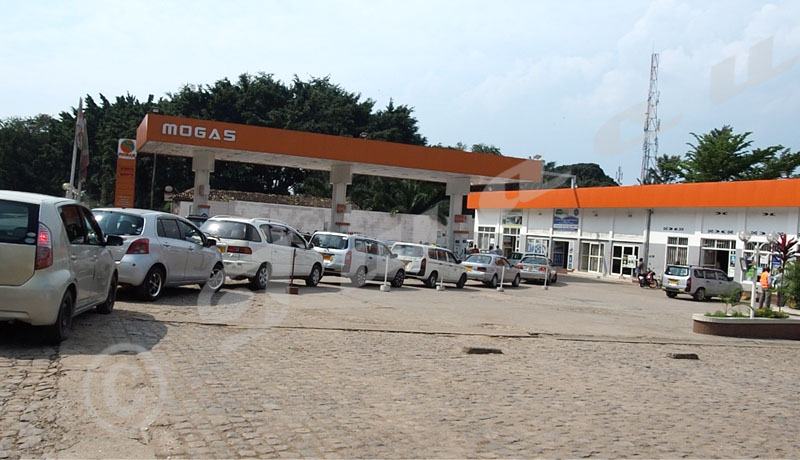From the south to the north of the capital Bujumbura, few petrol stations were providing fuel and gasoil in the morning of 8 January. In the southern neighborhoods, Mogas station located in Kabondo quarter in Mukaza commune was providing fuel and gasoline after four days without working. Pump attendants met on the spot report that they ignore the cause of the shortage. “Our fuel supplier gives us a small quantity of fuel compared to the previous one,” says a pump attendant.

Vehicles lining up in queues for fuel
Some stations located in the south of Bujumbura city such as Kanyosha Mogas station, Kinindo City Oil and Kibenga station all along the National Road RN3 were closed. There were no fuel and gasoline. At Interpetrol Station located in Kanyosha quarter, the pump attendants distributed fuel and gasoline as usual. The person who is responsible for the station says they receive the fuel yesterday around 7:00 p.m. “The problem of fuel shortage has been observed since 2015. We have one supplier throughout the country and he distributes the quantity of fuel as he wishes and not according to the customers’ demand”, he says.
In the north of the capital, some petrol stations were also closed including Kigobe City Oil, Kigobe Mogas, Kobil and Nyabagere oil stations. “We haven’t had fuel and gasoline for few days, we ignore the main causes,” says a pump attendant met at Kigobe City oil station
Drivers of buses and taxis say they work at a loss because they spend a lot of time in the queue. Hence, taxi drivers are obliged to increase the transportation fees. “We don’t have any other choice than increasing the ticket,” says a taxi driver.
“It’s a technical problem”
Gabriel Rufyiri, chairman of the corruption watchdog-OLUCOME says the fuel shortage is due to several factors. “There is a political factor. The government doesn’t want to attend the dialogue sessions and find solutions to the current political crisis,” he says. He also says the shortage is due to the lack of foreign currency. “Suppliers don’t get sufficient foreign currency to import enough quantity. Then, one supplier monopolizes the market and fails to provide sufficient fuel to all petrol stations”, says Rufyiri adding that the lack of a strategic stock in the country worsens the situation.
The chairman of the corruption watchdog also says the government wants to collect a lot of tax revenues in the sector. “The government always wants to collect more than it produces. So, the population becomes the first victims of the situation even if it is reported that the latter is related to a technical problem”, he says.
When contacted, Léonidas Sindayigaya, Spokesman for the Ministry of Energy and Mines says his institution is doing its best to handle the issue as the President has already declared.
During the public conference held in Ngozi on 28 December 2018, President Pierre Nkurunziza said the fuel shortage is related to a technical problem. “The problem isn’t new today and it will always happen and take a long time to be solved. Why do always people want to deal with easy things? ” he wonders. He also said the ministry in charge of energy has been established to handle the issue: “We are not alone. Every country faces the same challenges. Fuel shortage always occurs and people should be accustomed to it,” he said.



















 IWACU Open Data
IWACU Open Data

